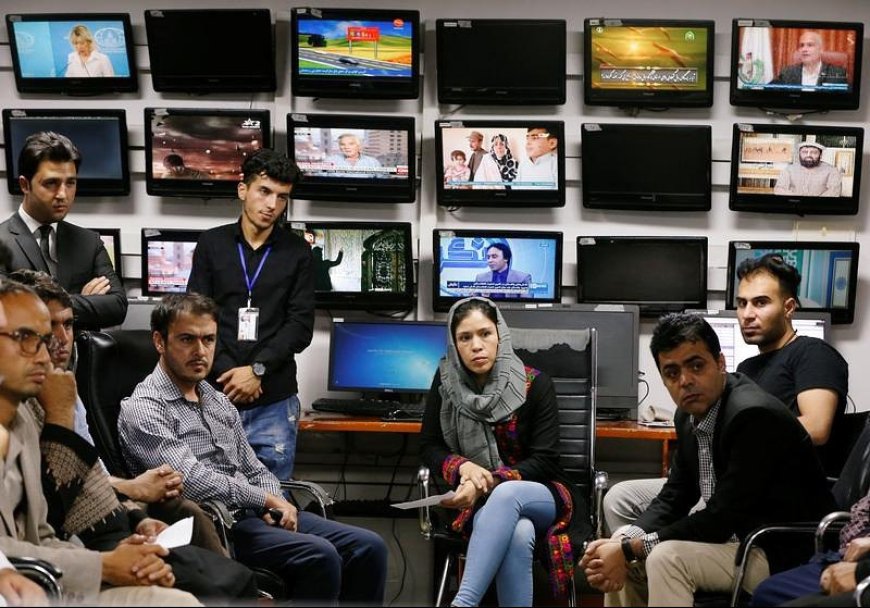The fate of the Afghan media following Taliban's takeover of power

By: F. Najafi
Restrictive measures against media in Afghanistan include, among others, the censoring of media outlets, the dismissal of media staff, and the expulsion of Afghan journalists.
Since the Taliban's August 2021 takeover of Kabul, media restrictions and censorship have been on the agenda in Afghanistan. On World Television Day, the Association of Free Journalists of Afghanistan reported that broadcasts on 54 national and local television stations had been suspended since November 2022, resulting in the loss of around 1,700 jobs. On average, sixty percent of Afghan journalists and over seventy-five percent of female journalists lost their jobs.
Observers believe that the Taliban's media strategy reflects the group's intention to establish a Pashtun regime.
On World Television Day, the "Nei" organisation, which advocates for free media in Afghanistan, released a report on November 21, 2022, claiming that more than half of the country's television networks had stopped operations owing to Taliban restrictions. Furthermore, 48 percent of Afghanistan's radio networks ceased operations during the last year.
In addition, the Afghan Association of Free Journalists published research suggesting that journalists in Afghanistan continue to face intrusive surveillance, intimidation, arbitrary arrest and imprisonment, physical abuse, forced disappearances, and even assassination, which have not been adequately investigated by the Taliban's legal system.
In this context, Ramin Salek, a former senior manager of this television station and one of the 124,000 individuals evacuated to Australia by American forces, said, "I hoped I wouldn't have to receive this terrible news, but finally it happened," Former Sports Network staffer Nazanin Vali lamented the shutdown of the website that promoted the talents of Afghanistan's finest male and female athletes.
Khapolwak Sapaei, the foreign-based head of “Tulūʿ Television”, one of the most widely viewed Afghan channels, pointed out that 90 percent of his personnel had been put off by November 2021. Since August 1, other private networks in Afghanistan have been shut down one by one, and their reporters, anchors, and employees have been deported. Each of these networks served as a source of TV and radio news for myriad of political, ethnic, and political groups in Afghanistan.
In accordance with the Western method of public diplomacy, the Taliban-controlled media platform in Afghanistan has been employed to develop an intellectual-cultural framework against hostile anti-Taliban governments and political institutions.
In accordance with the Western method of public diplomacy, the Taliban-controlled media platform in Afghanistan has been employed to develop an intellectual-cultural framework against hostile anti-Taliban governments and political institutions. Afghan journalists trained by NATO-Western forces in Afghanistan and abroad over the previous two decades, who left the war-torn nation as part of the 126 thousand Afghan refugees in August 2021, were the most potent force in this cultural battle.













































